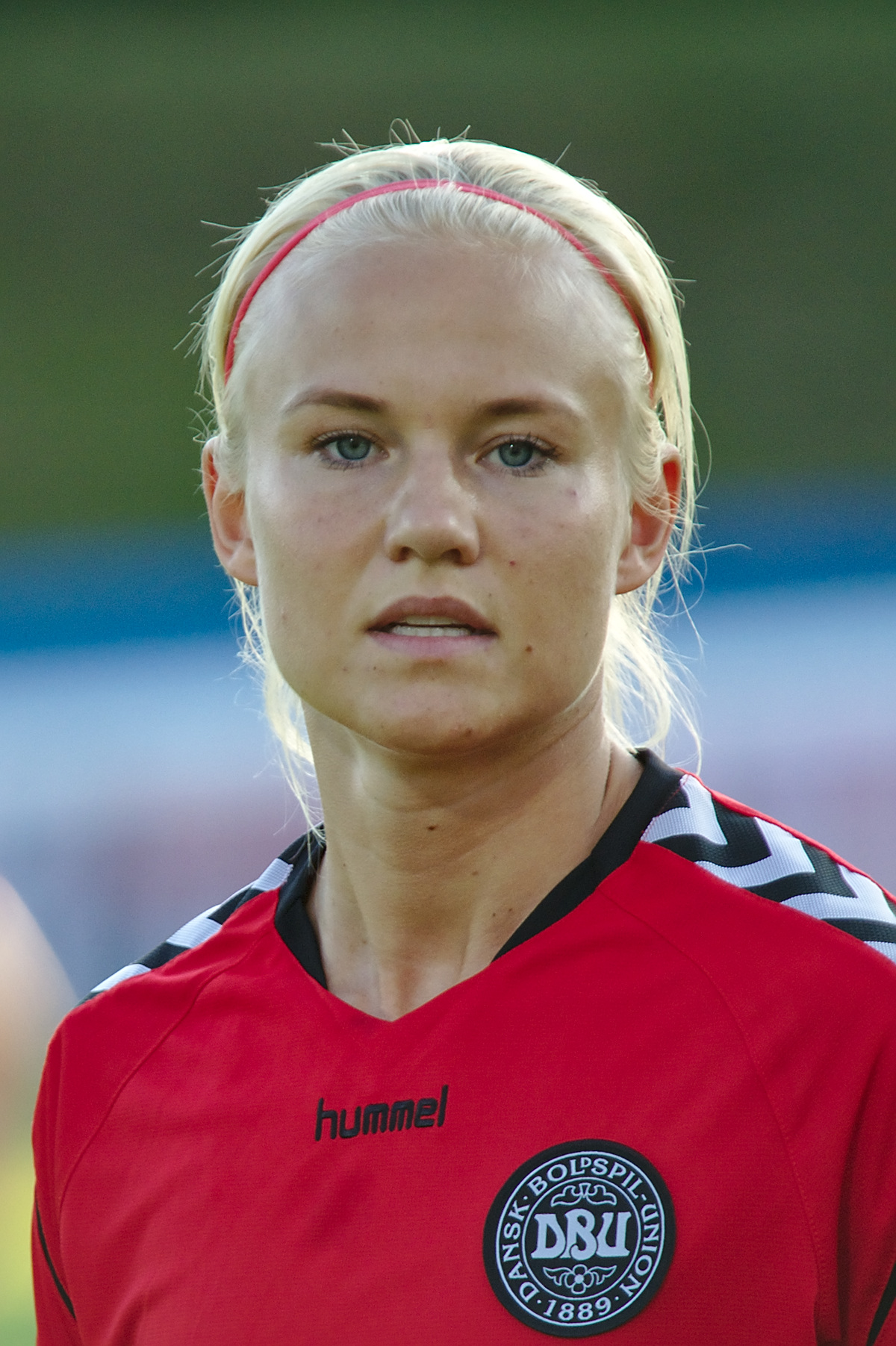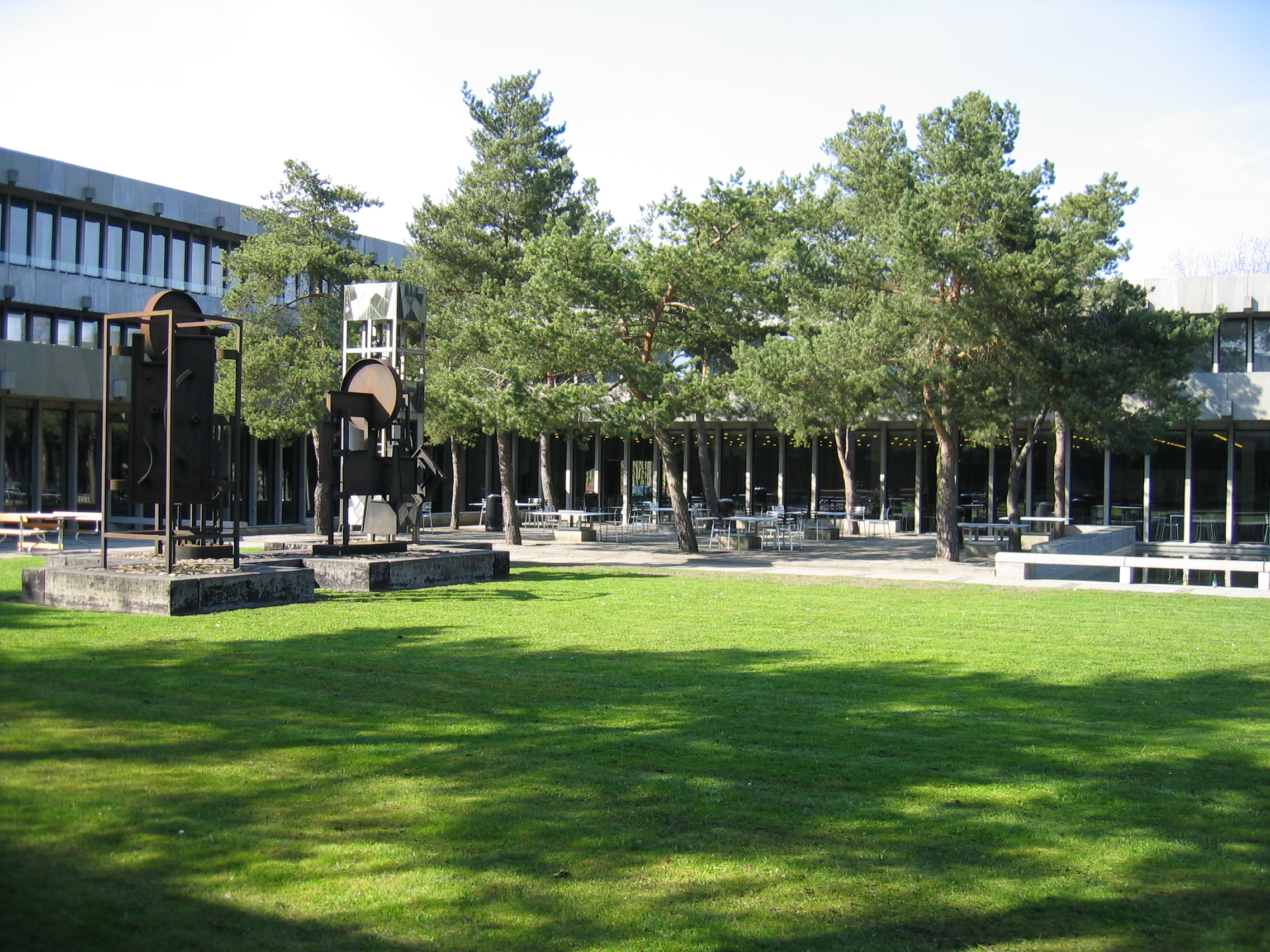|
Ulrik Lund Andersen
Ulrik Lund Andersen (born 1972 in Ikast) is a Danish physicist and professor of physics at the Department of Physics at the Technical University of Denmark (DTU), who researches quantum optics and quantum network Quantum networks form an important element of quantum computing and quantum communication systems. Quantum networks facilitate the transmission of information in the form of quantum bits, also called qubits, between physically separated quantum p ...s. He went to Ikast-Brande Gymnasium high school. He received a Master of Science in physics from DTU in 1999 and a Ph.D. from DTU in 2003. He worked at the University of Erlangen–Nuremberg in Germany from 2003-2006, and was then employed as an associate professor at DTU. In 2012, he was appointed professor and section leader at DTU Physics. In 2013, Andersen received the EliteForsk Prize in recognition of his work on quantum optics. References External links * 1972 births Living people 21st-century Danish phy ... [...More Info...] [...Related Items...] OR: [Wikipedia] [Google] [Baidu] |
Ikast
Ikast is a Danish town in the Mid Jutland Region (''Midtjylland''). It is the seat of Ikast-Brande Municipality since 2007. It was the seat of the former Ikast Municipality. Geography The town is situated in the middle of Jutland. The town is situated 5 km from Hammerum, which is the Eastern outskirts of Herning Municipality. Ikast is situated 28 km from Silkeborg, and 69 km away from Aarhus. Demography As of 1 January 2022, the population of the town is 15,979.BY3: Population 1st January by urban areas, area and population density The Mobile Statbank from History Up until late in the nineteent ...[...More Info...] [...Related Items...] OR: [Wikipedia] [Google] [Baidu] |
Technical University Of Denmark
The Technical University of Denmark ( da, Danmarks Tekniske Universitet), often simply referred to as DTU, is a polytechnic university and school of engineering. It was founded in 1829 at the initiative of Hans Christian Ørsted as Denmark's first polytechnic, and it is today ranked among Europe's leading engineering institutions. It is located in the town Kongens Lyngby, north of central Copenhagen, Denmark. Along with École Polytechnique in Paris, École Polytechnique Fédérale de Lausanne, Eindhoven University of Technology, Technical University of Munich and Technion – Israel Institute of Technology, DTU is a member of EuroTech Universities Alliance. History DTU was founded in 1829 as the "College of Advanced Technology" (Danish: Den Polytekniske Læreanstalt). The Physicist Hans Christian Ørsted, at that time a professor at the University of Copenhagen, was one of the driving forces behind this initiative. He was inspired by the École Polytechnique in Paris, Franc ... [...More Info...] [...Related Items...] OR: [Wikipedia] [Google] [Baidu] |
Quantum Optics
Quantum optics is a branch of atomic, molecular, and optical physics dealing with how individual quanta of light, known as photons, interact with atoms and molecules. It includes the study of the particle-like properties of photons. Photons have been used to test many of the counter-intuitive predictions of quantum mechanics, such as entanglement and teleportation, and are a useful resource for quantum information processing. History Light propagating in a restricted volume of space has its energy and momentum quantized according to an integer number of particles known as photons. Quantum optics studies the nature and effects of light as quantized photons. The first major development leading to that understanding was the correct modeling of the blackbody radiation spectrum by Max Planck in 1899 under the hypothesis of light being emitted in discrete units of energy. The photoelectric effect was further evidence of this quantization as explained by Albert Einstein in a 1905 ... [...More Info...] [...Related Items...] OR: [Wikipedia] [Google] [Baidu] |
Quantum Network
Quantum networks form an important element of quantum computing and quantum communication systems. Quantum networks facilitate the transmission of information in the form of quantum bits, also called qubits, between physically separated quantum processors. A quantum processor is a small quantum computer being able to perform quantum logic gates on a certain number of qubits. Quantum networks work in a similar way to classical networks. The main difference is that quantum networking, like quantum computing, is better at solving certain problems, such as modeling quantum systems. Basics Quantum networks for computation Networked quantum computing or distributed quantum computing works by linking multiple quantum processors through a quantum network by sending qubits in-between them. Doing this creates a quantum computing cluster and therefore creates more computing potential. Less powerful computers can be linked in this way to create one more powerful processor. This is analog ... [...More Info...] [...Related Items...] OR: [Wikipedia] [Google] [Baidu] |
University Of Erlangen–Nuremberg
University of Erlangen–Nuremberg (german: Friedrich-Alexander-Universität Erlangen-Nürnberg, FAU) is a public research university in the cities of Erlangen and Nuremberg in Bavaria, Germany. The name Friedrich–Alexander comes from the university's first founder Friedrich, Margrave of Brandenburg-Bayreuth, and its benefactor Alexander, Margrave of Brandenburg-Ansbach. FAU is the second largest state university in the state of Bavaria. It has 5 faculties, 24 departments/schools, 25 clinical departments, 21 autonomous departments, 579 professors, 3,457 members of research staff and roughly 14,300 employees. In winter semester 2018/19 around 38,771 students (including 5,096 foreign students) enrolled in the university in 265 fields of study, with about 2/3 studying at the Erlangen campus and the remaining 1/3 at the Nuremberg campus. These statistics put FAU in the list of top 10 largest universities in Germany. In 2018, 7,390 students graduated from the university and 840 do ... [...More Info...] [...Related Items...] OR: [Wikipedia] [Google] [Baidu] |
EliteForsk Prize
The EliteForsk Prize (Elite Research Prize) is the most prestigious award given by the Danish Council for Independent Research, of the Danish Ministry of Higher Education and Science. The award of 1.2 million Danish krone honors outstanding researchers of international acclaim, who are under 45 years of age, and is currently awarded to five individuals annually. Recipients External links Danish Council for Independent ResearchEliteForsk References {{Reflist Danish awards ... [...More Info...] [...Related Items...] OR: [Wikipedia] [Google] [Baidu] |
1972 Births
Within the context of Coordinated Universal Time (UTC) it was the longest year ever, as two leap seconds were added during this 366-day year, an event which has not since been repeated. (If its start and end are defined using Solar time, mean solar time [the legal time scale], its duration was 31622401.141 seconds of Terrestrial Time (or Ephemeris Time), which is slightly shorter than 1908 in science#Astronomy, 1908). Events January * January 1 – Kurt Waldheim becomes Secretary-General of the United Nations. * January 4 - The first scientific hand-held calculator (HP-35) is introduced (price $395). * January 7 – Iberia Airlines Flight 602 crashes into a 462-meter peak on the island of Ibiza; 104 are killed. * January 9 – The RMS Queen Elizabeth, RMS ''Queen Elizabeth'' is destroyed by fire in Hong Kong harbor. * January 10 – Independence leader Sheikh Mujibur Rahman returns to Bangladesh after spending over nine months in prison in Pakistan. * January 11 – Sheik ... [...More Info...] [...Related Items...] OR: [Wikipedia] [Google] [Baidu] |
Living People
Related categories * :Year of birth missing (living people) / :Year of birth unknown * :Date of birth missing (living people) / :Date of birth unknown * :Place of birth missing (living people) / :Place of birth unknown * :Year of death missing / :Year of death unknown * :Date of death missing / :Date of death unknown * :Place of death missing / :Place of death unknown * :Missing middle or first names See also * :Dead people * :Template:L, which generates this category or death years, and birth year and sort keys. : {{DEFAULTSORT:Living people 21st-century people People by status ... [...More Info...] [...Related Items...] OR: [Wikipedia] [Google] [Baidu] |
21st-century Danish Physicists
The 1st century was the century spanning AD 1 ( I) through AD 100 ( C) according to the Julian calendar. It is often written as the or to distinguish it from the 1st century BC (or BCE) which preceded it. The 1st century is considered part of the Classical era, epoch, or historical period. The 1st century also saw the appearance of Christianity. During this period, Europe, North Africa and the Near East fell under increasing domination by the Roman Empire, which continued expanding, most notably conquering Britain under the emperor Claudius (AD 43). The reforms introduced by Augustus during his long reign stabilized the empire after the turmoil of the previous century's civil wars. Later in the century the Julio-Claudian dynasty, which had been founded by Augustus, came to an end with the suicide of Nero in AD 68. There followed the famous Year of Four Emperors, a brief period of civil war and instability, which was finally brought to an end by Vespasian, ninth Roman ... [...More Info...] [...Related Items...] OR: [Wikipedia] [Google] [Baidu] |
Academic Staff Of The Technical University Of Denmark
An academy ( Attic Greek: Ἀκαδήμεια; Koine Greek Ἀκαδημία) is an institution of secondary or tertiary higher learning (and generally also research or honorary membership). The name traces back to Plato's school of philosophy, founded approximately 385 BC at Akademia, a sanctuary of Athena, the goddess of wisdom and skill, north of Athens, Greece. Etymology The word comes from the ''Academy'' in ancient Greece, which derives from the Athenian hero, ''Akademos''. Outside the city walls of Athens, the gymnasium was made famous by Plato as a center of learning. The sacred space, dedicated to the goddess of wisdom, Athena, had formerly been an olive grove, hence the expression "the groves of Academe". In these gardens, the philosopher Plato conversed with followers. Plato developed his sessions into a method of teaching philosophy and in 387 BC, established what is known today as the Old Academy. By extension, ''academia'' has come to mean the accumulation, de ... [...More Info...] [...Related Items...] OR: [Wikipedia] [Google] [Baidu] |
Technical University Of Denmark Alumni
Technical may refer to: * Technical (vehicle), an improvised fighting vehicle * Technical analysis, a discipline for forecasting the future direction of prices through the study of past market data * Technical drawing, showing how something is constructed or functions (also known as drafting) * Technical file, set of technical drawings * Technical death metal, a subgenre of death metal that focuses on complex rhythms, riffs, and song structures * Technical foul, an infraction of the rules in basketball usually concerning unsportsmanlike non-contact behavior * Technical rehearsal for a performance, often simply referred to as a technical * Technical support, a range of services providing assistance with technology products * Vocational education, often known as technical education * Legal technicality, an aspect of law See also * Lego Technic, a line of Lego toys * Tech (other) * Technicals (other) * Technics (other) * Technique (other) * ... [...More Info...] [...Related Items...] OR: [Wikipedia] [Google] [Baidu] |
Academic Staff Of The University Of Erlangen-Nuremberg
An academy ( Attic Greek: Ἀκαδήμεια; Koine Greek Ἀκαδημία) is an institution of secondary or tertiary higher learning (and generally also research or honorary membership). The name traces back to Plato's school of philosophy, founded approximately 385 BC at Akademia, a sanctuary of Athena, the goddess of wisdom and skill, north of Athens, Greece. Etymology The word comes from the ''Academy'' in ancient Greece, which derives from the Athenian hero, ''Akademos''. Outside the city walls of Athens, the gymnasium was made famous by Plato as a center of learning. The sacred space, dedicated to the goddess of wisdom, Athena, had formerly been an olive grove, hence the expression "the groves of Academe". In these gardens, the philosopher Plato conversed with followers. Plato developed his sessions into a method of teaching philosophy and in 387 BC, established what is known today as the Old Academy. By extension, ''academia'' has come to mean the accumulation, d ... [...More Info...] [...Related Items...] OR: [Wikipedia] [Google] [Baidu] |





